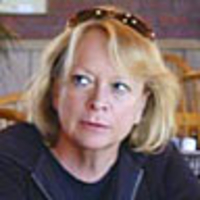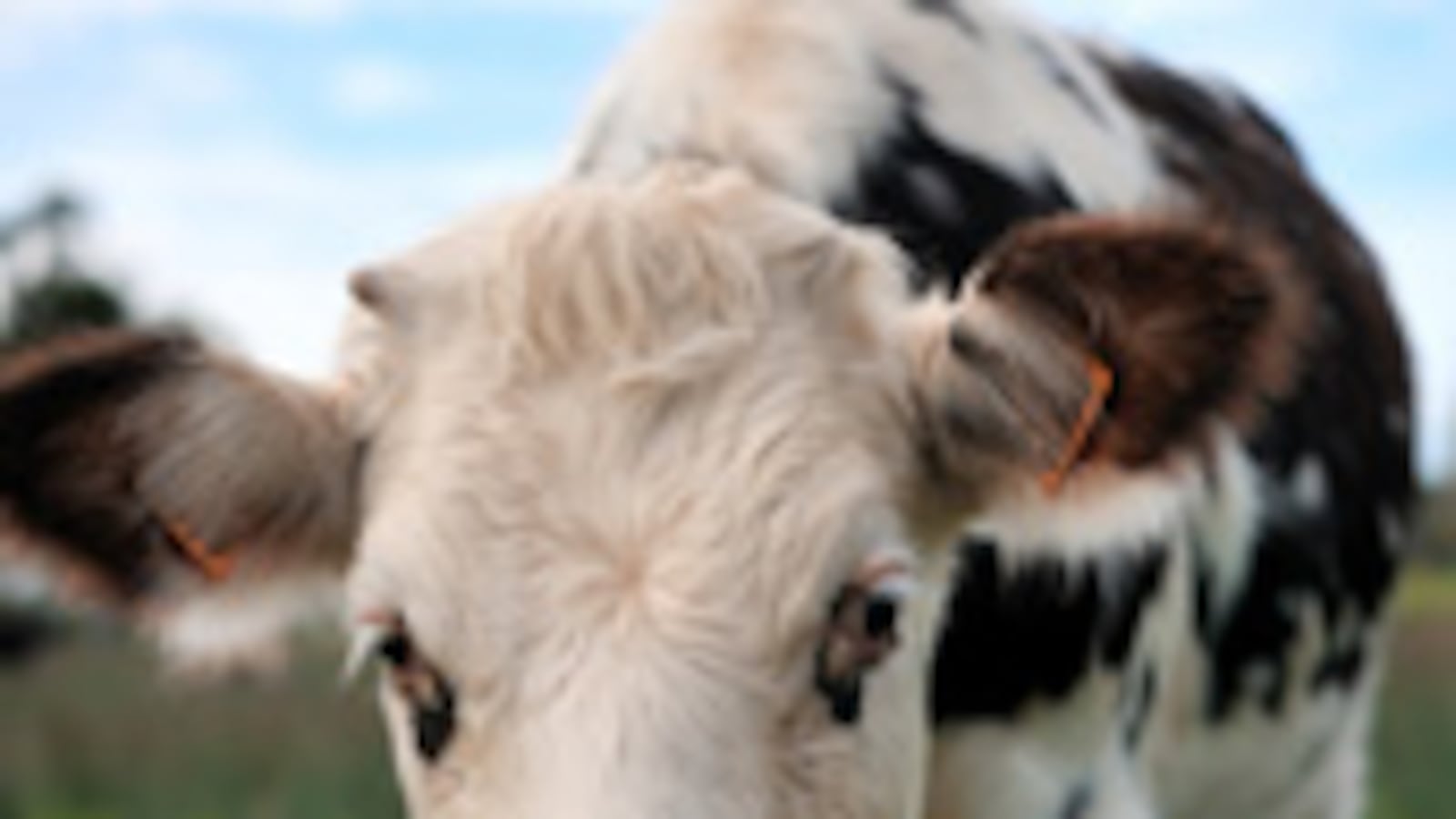
My introduction to Jonathan Safran Foer’s work was in the pages of The New Yorker’s debut fiction issue, June 18, 2001. His astonishingly fresh voice was evident from the opening lines: “My legal name is Alexander Perchov. But all of my many friends dub me Alex, because that is a more flaccid-to-utter version of my legal name.” In Everything Is Illuminated, the novel from which the section was excerpted, Alex, butcher of English, serves as translator for Jonathan Safran Foer, auteur/hero, who is on a heritage tour of Ukraine in search the woman who hid his grandfather from the Nazis. The 2002 novel was honored with the Guardian First Book Prize, the National Jewish Book Award, and the New York Public Library Young Lions Prize. Foer’s second novel, Extremely Loud and Incredibly Close (2004), revolved around a 9-year-old genius whose father was killed when the Twin Towers were attacked on Sept. 11, 2001.
“Every flu pandemic has had animal origins. And we are now raising tens of billions of animals in conditions that require sickness to be part of the business model. Our farms have become Petri dishes.”
Now the Brooklyn-based Foer is back with Eating Animals, a nonfiction book that is a well-reasoned and compassionate condemnation of factory farms, a call to arms for vegetarians, vegans, and those who choose to eat meat only if it is raised and butchered under humane conditions.

“Fatherhood compelled me to write Eating Animals,” Foer explained. “Like most people, I’d given some thought to what meat actually is, but until I became a father and faced the prospect of having to make food choices on someone else’s behalf, there was no urgency to get to the bottom of things.
“I never had it in mind to write nonfiction, and frankly I doubt I’ll ever do it again. But this topic, at this moment, is something no one should ignore. (As a writer, putting words on the page is how I pay attention.) If animal agriculture isn’t the most important problem in the world right now—it’s the No. 1 cause of global warming, No. 1 cause of animal suffering, a decisive factor in the creation of zoonotic diseases like bird and swine flu, and so on—it is the problem with the most deafening silence surrounding it. Even the most political people, the most thoughtful and engaged, tend not to ‘go there.’ And for good reason. Going there can be extremely uncomfortable. Food is not just what we put in our mouths to fill up; it is culture and identity. Reason plays some role in our decisions about food, but it’s rarely driving the car.”
Foer spent three years researching animal agriculture for the book. He builds his argument against factory farms through statistics, oral history, and research across a spectrum of meat producers, from commendable farms like Niman Ranch in Marin County to foul turkey barns where creatures live in misery and die horribly. He writes that 99 percent of all animals eaten come from factory farms. “This has to do with the incredible amount of chicken Americans now eat—about 150 times as much as we did 80 years ago,” he says. He breaks the figure down like this: 99.94 percent of chickens raised for meat in America are factory farmed; 95.41 percent of pigs; 78.2 percent of cows. The definition of “factory farming” becomes somewhat looser with respect to cows, he adds. “And this doesn’t get into fish, not because they have it any better, or because we should care any less. But fish aren’t ever tabulated as individuals, only as mass.”
Foer devotes one chilling chapter to the ways in which factory farms might contribute to the development and spread of new strains of flu. What does he see as the biggest danger over the next year or so? “Look, human-animal flus are inevitable, and the worst in history (of 1918) came before the creation of factory farms. So I don’t want to overstate the connection. But one shouldn’t understate the perfect conditions we are creating for the creation of new flus. Every flu pandemic has had animal origins. And we are now raising tens of billions of animals in conditions that require sickness to be part of the business model. Our farms have become Petri dishes.”
Locked doors at the factory farms were what unsettled him most. “I approached this research as a new father, wanting to make an informed decision about what to feed my son,” he said. “If I wanted to know where his apple juice comes from, I could fairly easily find the orchard. If I wanted to know about a cookie, the neighborhood deli would let me behind the counter. But I challenge any reader of this interview to get an invitation to a factory farm. Sure, there are show farms that the industry brings out whenever such objections are raised. But try to see the kind of farm that produces virtually all of America’s meat, and you will have no luck. Eric Schlosser had no luck, Michael Pollan had no luck, and it required me finding a provision in state law that legally permits what would otherwise be considered trespassing when animals are held without sufficient water. All of this to see where my son’s food comes from. It’s amazing, isn’t it, that an industry expects us to pay for and consume products whose origins they won’t let us see?”
Foer began writing Eating Animals when his wife, the novelist Nicole Krauss, was expecting their firstborn son. The couple today has two sons. What are they eating now?
“My kids eat everything other kids eat, just no meat,” he said. “The burden of explaining really falls to parents who feed their children meat. Killing animals for food—even when done in the most humane ways—is antithetical to everything else parents teach their children about animals. Animals are the heroes of children’s books, the stuffed toys kids fall asleep with, pets, objects of fascination and wonder. No parent would stand idly by as his or her child abused an animal.
“None of this necessarily says anything about the rightness or wrongness of eating animals—we raise our children with all different kinds of oversimplicities, half-truths, and make believe. But in the three years I spent researching animal farming, I didn’t meet a single slaughterer who was perfectly comfortable with killing animals. That says something. Our taste for animals can be lost, but our discomfort with what we do to them cannot.”
Foer acknowledges the influence of Michael Pollan. And how about Food, Inc., the Robert Kenner documentary about the state of our food industry?
“I saw and greatly admired Food, Inc. It managed to be informative, angry, and quite moving,” Foer said. “Not an easy combination to pull off. Despite some disagreements we have, Michael Pollan is a hero of mine. No one in America is better at bringing the very big ideas into riveting focus. Eating Animals is different primarily because it’s about meat, and his work has thus far only glanced on the subject. But more, I wrote my book from a very personal, rather than journalistic place. While he and I aspire to the same kind of objectivity and accuracy, I spend more time lingering on psychology, personal history, and the messiness of being human.”
Is he working on fiction again? “Fiction from here on out.”
Plus: Check out Book Beast for more news on hot titles and authors and excerpts from the latest books.
Jane Ciabattari’s work has appeared in Bookforum,The Guardian online, The New York Times, Los Angeles Times, Washington Post, Columbia Journalism Review, among others. She is president of the National Book Critics Circle and author of the short-story collection Stealing the Fire. Recent short stories are online at KGB Bar Lit, Verbsap, Literary Mama and Lost Magazine.






